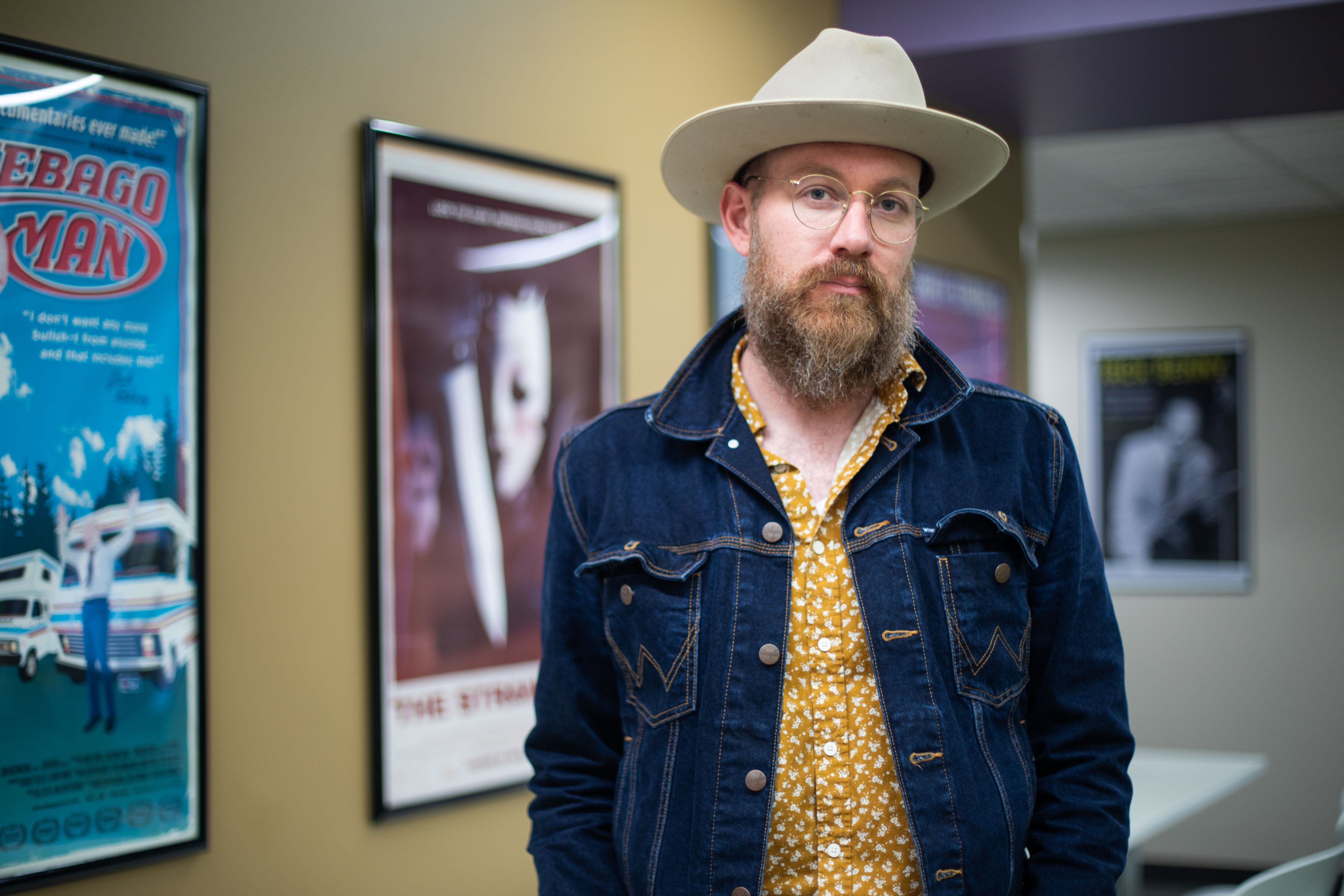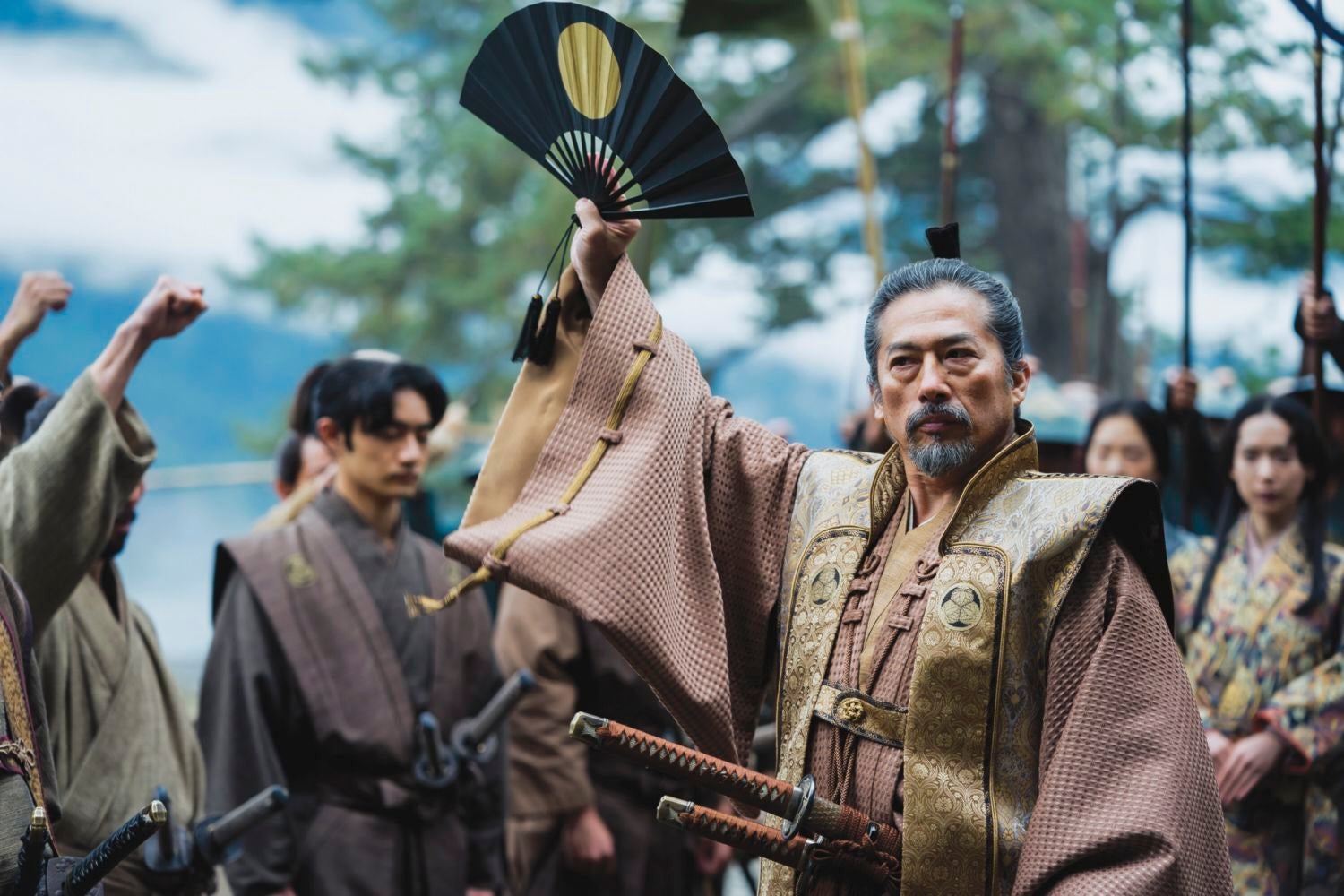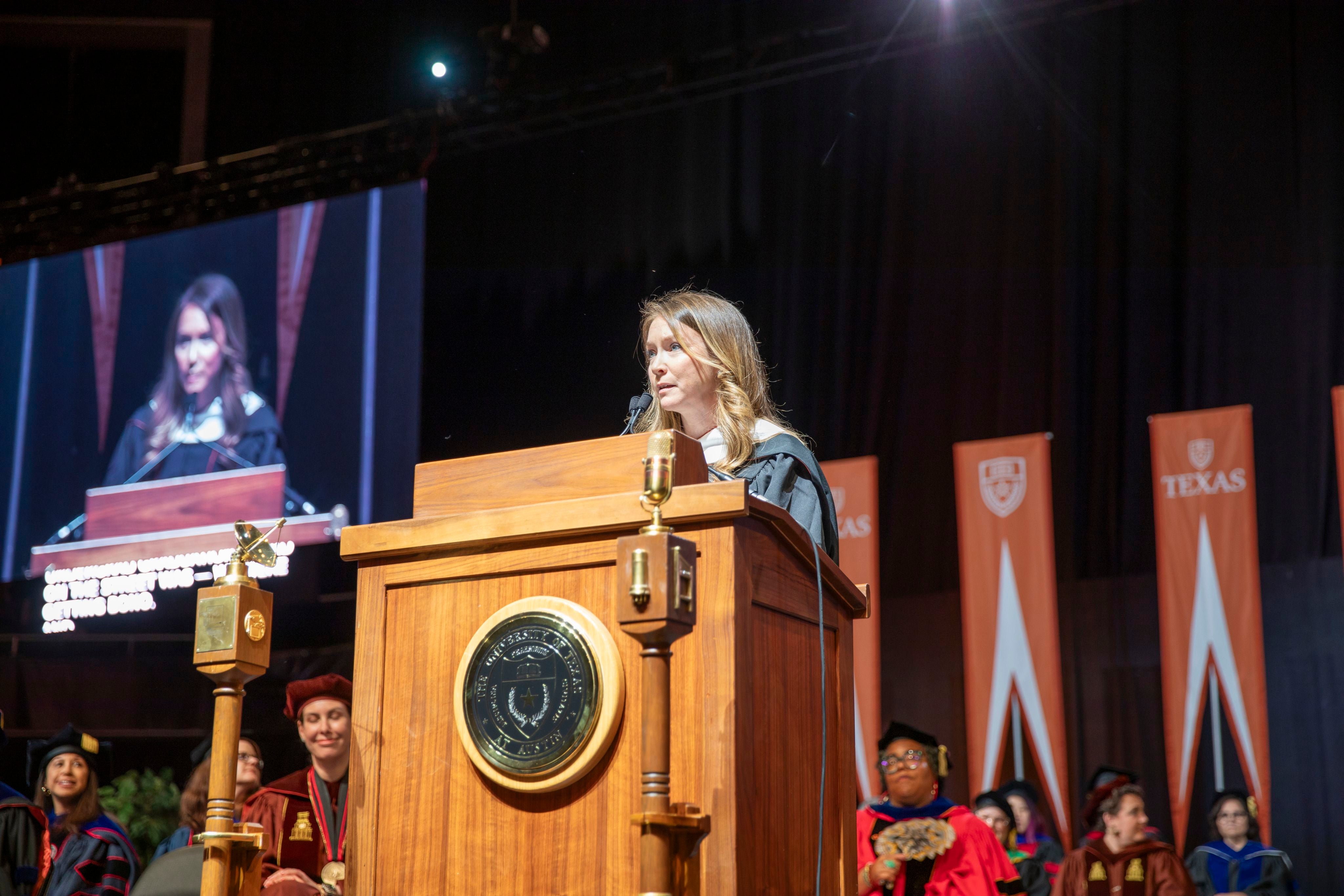From pen to production
From pen to production
How Moody College screenwriting students are shaping the future of TV and film
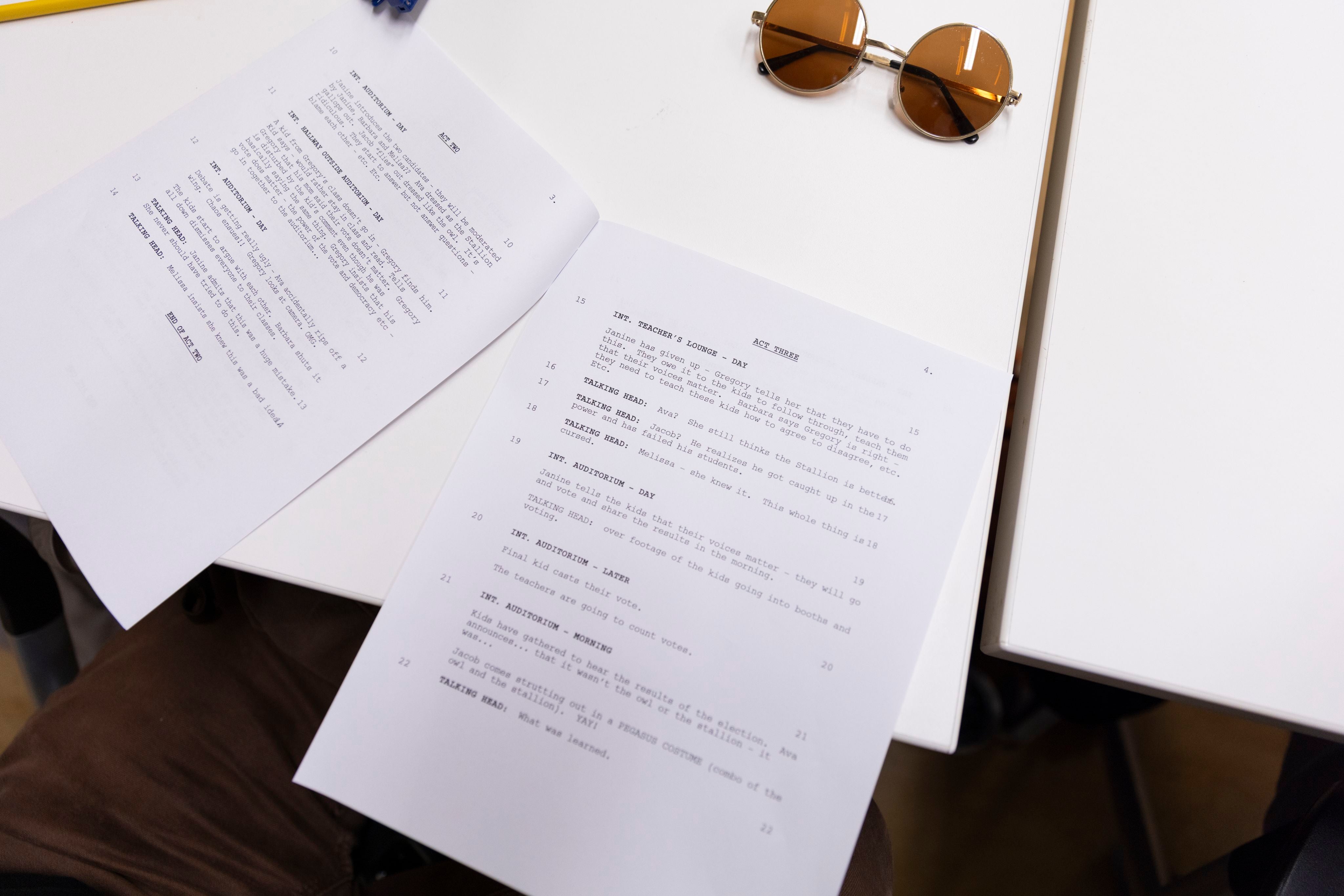
Moody College of Communication screenwriting graduate student Amanda Dieli always wanted to be an actor. She dreamed of being on the big screen and worked hard to earn her Bachelor of Fine Arts in acting from the University of Southern California (USC) hoping to make that a reality.
But once she stepped into the professional world, Dieli found acting was nothing like she expected. “The pursuit of a career as an actor is incredibly tedious,” she said. “You can burn out pretty quickly because it's so dependent on somebody else making an opportunity for you.”
After graduating from USC, Dieli moved to New York City and started working in improv theater and sketch comedy. She developed a live show with her friends that ran for three years. Following the run of the live show, she later wrote and developed a web series, which cemented her love for the writing process and production. This led her to the screenwriting Master of Fine Arts program at Moody College of Communication.
“The agency I felt as a creative person in screenwriting was so much more than I ever felt as an actor,” Dieli said.
“The agency I felt as a creative person in screenwriting was so much more than I ever felt as an actor.”
—Amanda Dieli
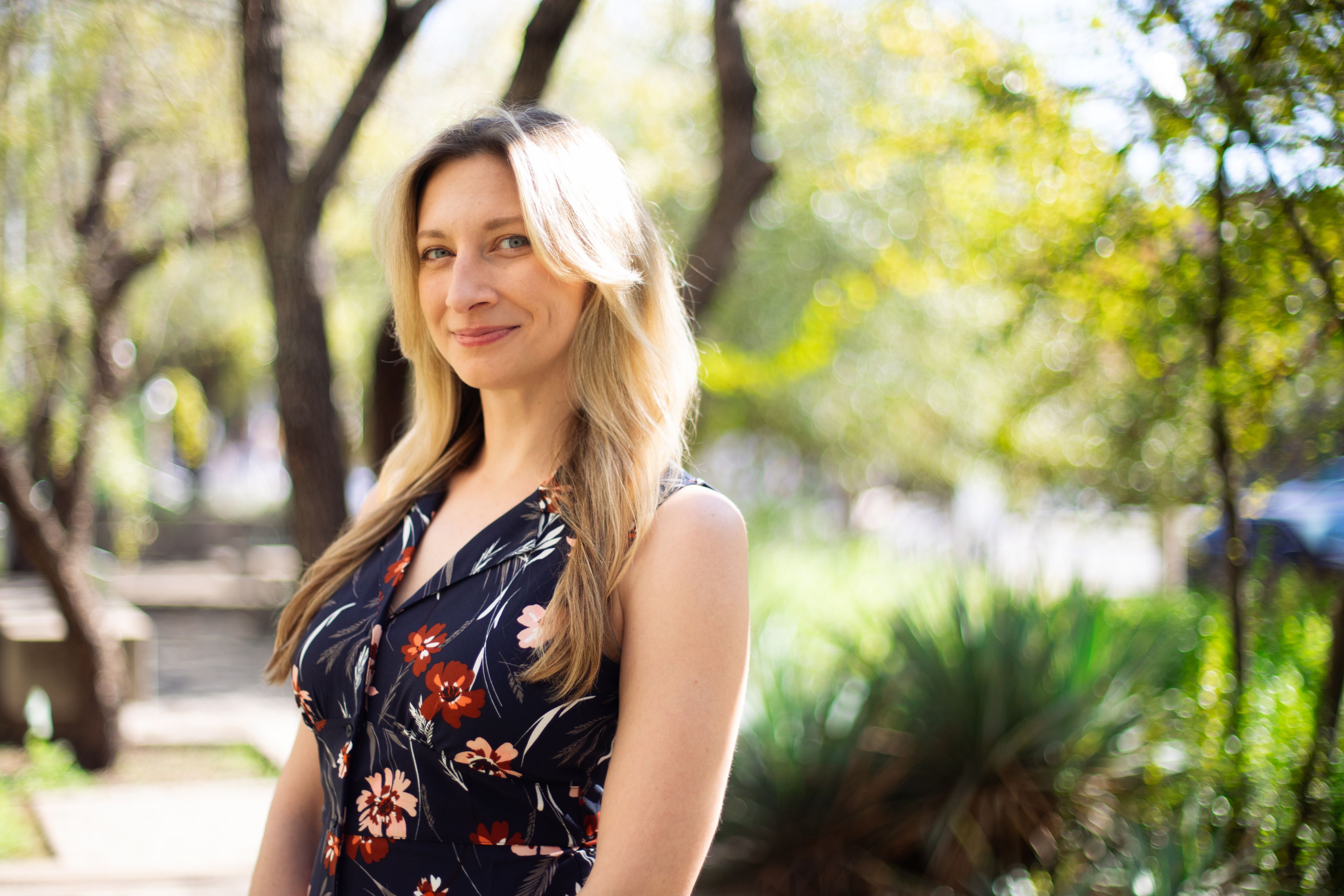
The Moody College MFA screenwriting program draws people in on reputation alone. The two-year, 42-hour program is designed for creatives who are passionate about storytelling. In the first year, students work on an original feature screenplay as well as a television pilot and television spec scripts. In the second year, they expand upon the fundamentals and prepare for professional careers as screenwriters. An internship is required for graduation. Many previous students have worked with companies like Hulu, HBO, the Austin Film Festival, South by Southwest and with Austin-based filmmakers Richard Linklater and Noah Hawley.
Today, Moody screenwriting grads are listed in the credits of some of the biggest films and TV shows.
Hiroyuki Sanada in Episode Four of his Emmy Award–winning performance in Shōgun.
Hiroyuki Sanada in Episode Four of his Emmy Award–winning performance in Shōgun.
Rachel Kondo, co-creator and executive producer of FX’s “Shogun”, just won the Golden Globe, as well as an Emmy, for best drama. Rachel graduated from the Michener Center for Writing (MCW) MFA program in 2015. The program collaborates with Moody College where students complete all of their screenwriting courses through the Department of Radio-Television-Film (RTF) and work with faculty on the admissions committees for both programs.
Ben Philippe, also an MCW graduate, wrote for the first three seasons of the Hulu series “Only Murders in the Building” and is now a co-executive producer to the upcoming spinoff of “The Office.” Other graduates have taken on roles outside of screenwriting. Liz Phang, who graduated in 2005, and Ameni Rozsa, who graduated in 2006, have both been nominated for Emmys as co-executive producers for the Showtime hit “Yellowjackets.” Alison Eakle, who also graduated in 2006, has gone on to produce the streaming sensations “Bridgerton, “Inventing Anna” and “Queen Charlotte.” She recently spoke at Moody College’s graduation and shared her experience working in the field.
Alison Eakle at the 2024 Commencement speaker. Photo by Leticia Rincon
Alison Eakle at the 2024 Commencement speaker. Photo by Leticia Rincon
“I am really proud of the program we have built. I think it is a hidden gem."
—Cindy McCreery
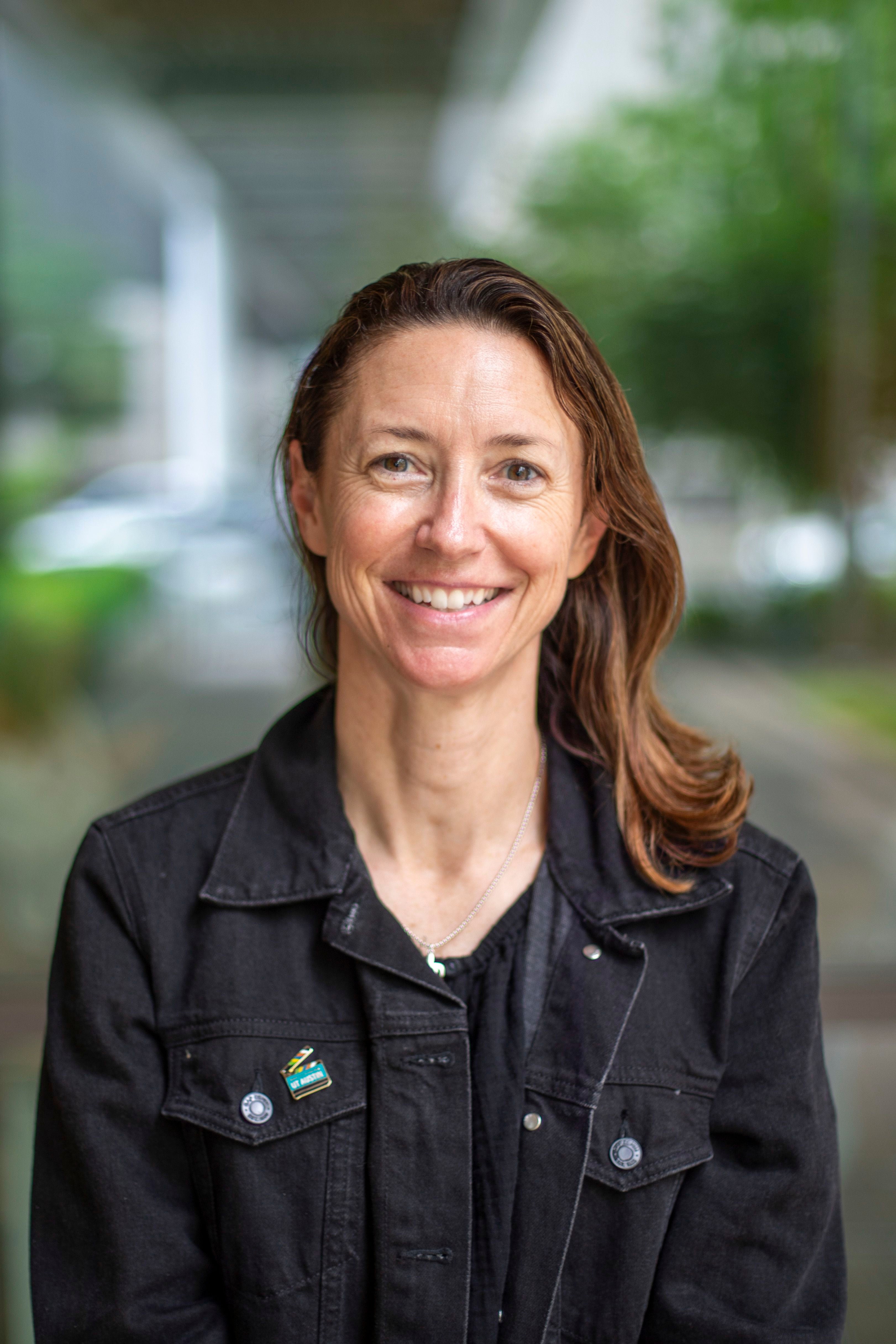
“I am really proud of the program we have built. I think it is a hidden gem,” said Cindy McCreery, professor and chair of the Department of Radio-Television-Film. “We have so many screenwriters coming out of our program who are successful — writers who have really unique voices. When people discover them, they are impressed not only by their talent but their originality and their hustle.”
McCreery says that Moody College allows students to focus on whatever they feel passionate about, whether that’s TV or feature films.
“Many end up doing both and work as teaching assistants. The combination of those things makes for really thoughtful and talented writers.”
UT Austin’s screenwriting program is one the few in the country where students can work as teaching assistants in their second year and are paid for their work. Students who pay in-state tuition and work as teaching assistants are able to attend the program virtually tuition-free. They also leave with valuable teaching experience that can help when applying for jobs.
“The fact that the program doesn’t come with all of this debt is psychologically freeing for you as a writer,” Dieli said. “There’s this sense you get from the program and the University that they respect you and they understand how difficult it is to make a career as a writer immediately. They get that the financial weight is actually what destroys and burns people out.”
“The fact that the program doesn’t come with all of this debt is psychologically freeing for you as a writer. There’s this sense you get from the program and the University that they respect you and they understand how difficult it is to make a career as a writer immediately. They get that the financial weight is actually what destroys and burns people out.”
—Amanda Dieli
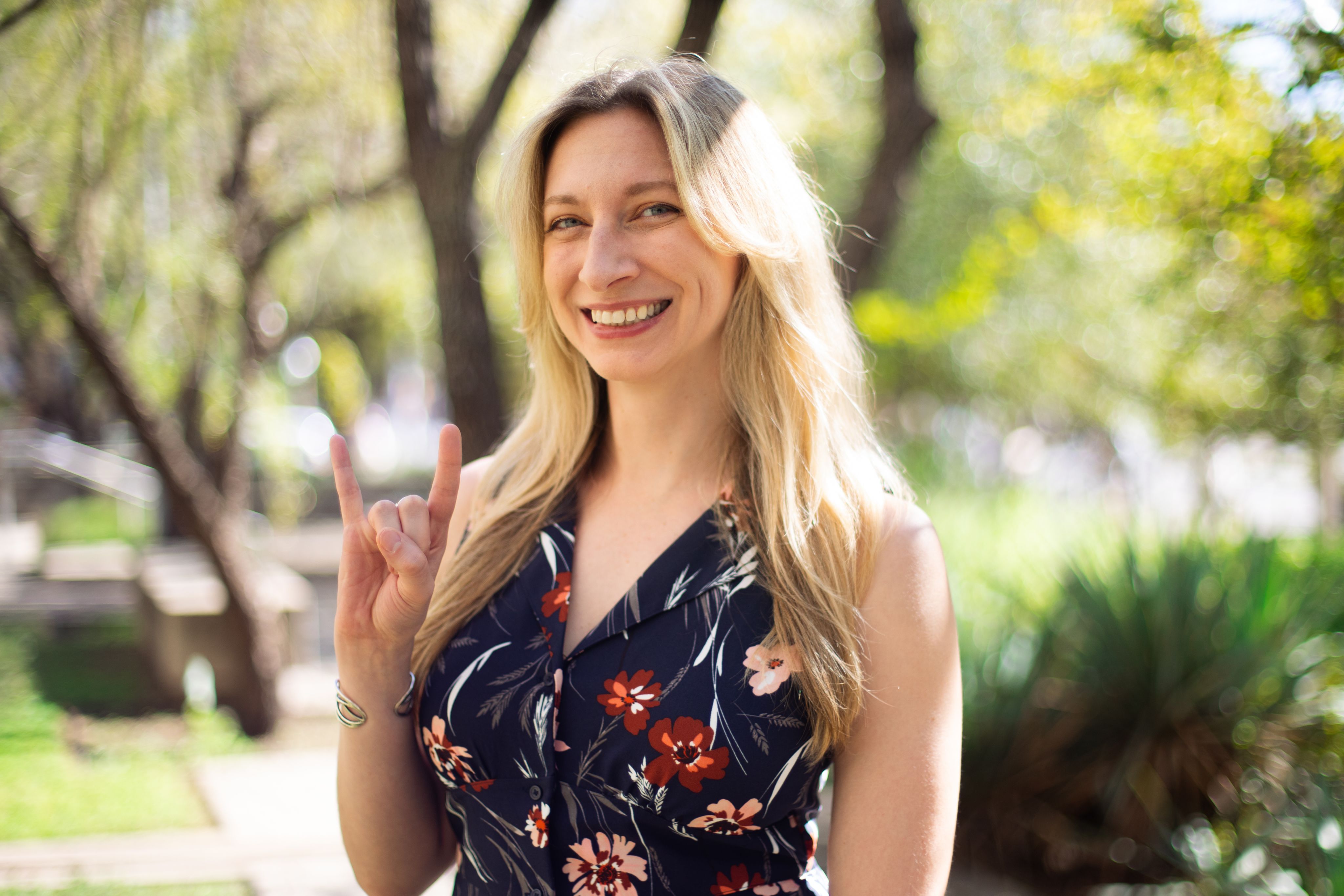
Many graduates of UT Austin’s screenwriting program have also gone on to teach, including Katherine Craft, a playwright and screenwriter who now works as an assistant professor practice in RTF.
With class sizes as small as seven, students have the opportunity to build strong relationships with their peers and professors. Dieli said the rapport students build with each other fosters a judgment-free environment in which everyone can freely share their work and receive constructive feedback from faculty and fellow classmates. Through its close-knit cohorts, renowned professors and financial support, students refine their skills and stretch the limits of their creativity.
Dieli admits she was worried about writing and if it would prove to be an unstable career. But the support offered through the program convinced her to try her hand at graduate school.
“Even when I haven't felt great about my pages, I still leave workshops feeling energized because I feel supported by my classmates and my professors,” Dieli said.
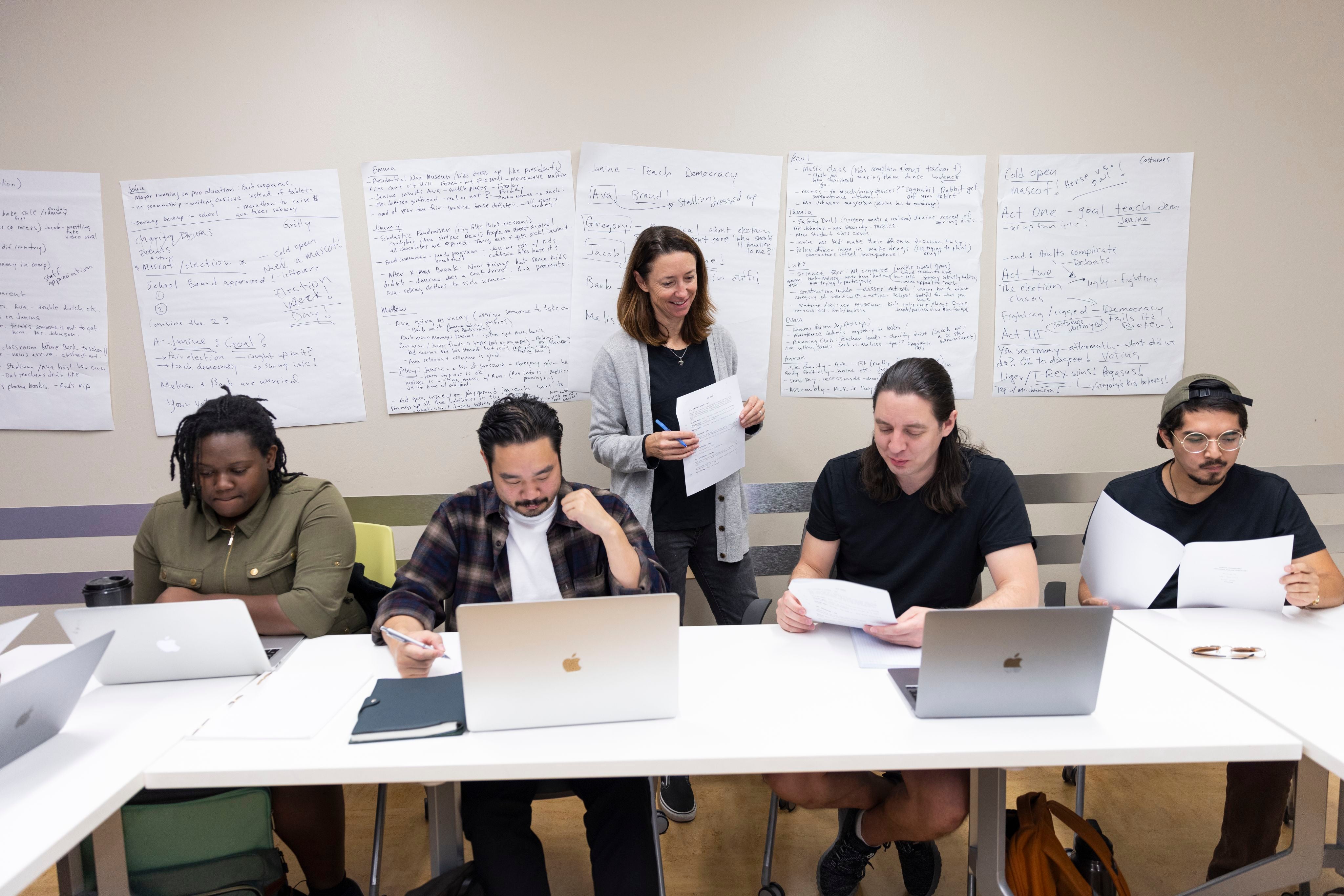
Second-year screenwriting major Alex Connolly also did not start her career wanting to be a screenwriter. She got her first foray into the entertainment industry by working as a high fashion model before she started acting. She said she always loved books so she was intrigued by the scripts she read for auditions. She soon decided to give writing a try.
Connolly received dual degrees in psychology and RTF from UT and knew she wanted to pursue a MFA in screenwriting too. She said by reading the work of others in the program, she is able to understand her classmates' styles and perspectives while improving her own writing.
“It’s hard when you’re the writer because since you know everything, you may leave things out that you think are already in the script,” Connolly said. “It’s really good to hear from people who have no idea where you’re going with the story.”
“I wanted to get my ideas on paper.”
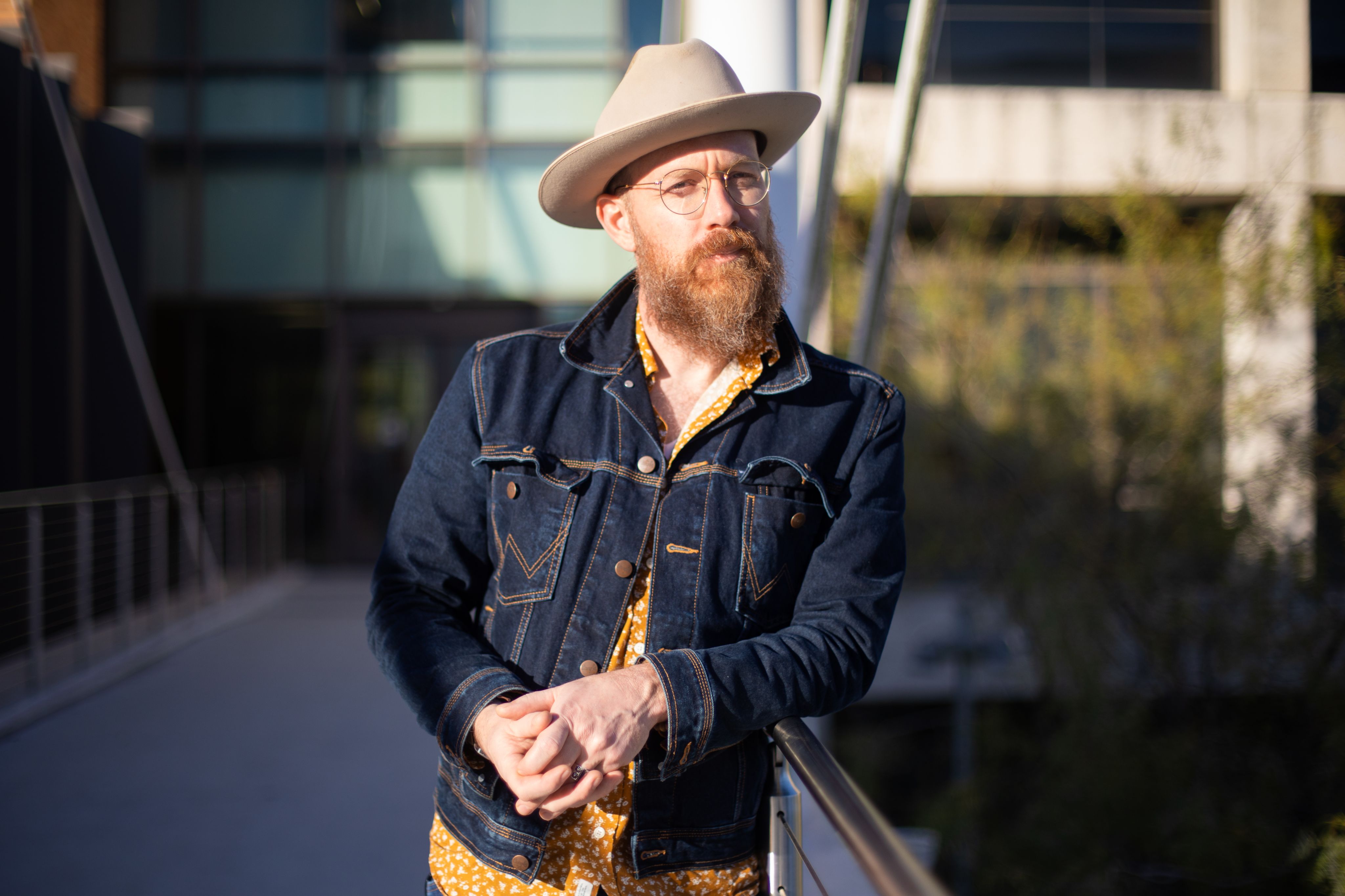
For second-year screenwriting student Cody Rea, the instinct to create began when he was young. Rea grew up in a rural farming community in the Texas Panhandle. He felt that movies were an escape. Rea started off working behind the camera at local news stations and later went to film school for production before he quickly realized his desire to write his own stories.
“I wanted to get my ideas on paper,” Rea said.
When Rea moved to Austin, he continued to work in TV, but when the pandemic hit it gave him the perfect opportunity to get into writing. During that time, he wrote his first full-length feature and submitted the script to a film festival where he was selected as a semi-finalist. He said having that stamp of approval gave him more confidence when applying for the screenwriting program.
Growing up in Texas, Rea always wanted to go to UT. He said he was attracted to the independent film scene that developed in Austin and how that energy finds its way into the classroom. Rea said he’s learned so much more about the screenwriting process while at Moody College, which has given him the skills to polish his cinematic voice.
“Screenwriting is like a collage; you have all of these ideas, and you’re going to reorganize them to find where they fit to create an effective narrative,” Rea said. “I have gotten the tools that give me the confidence to better understand how I write. It’s such a fluid and unexpected process.”
“Screenwriting is like a collage; you have all of these ideas, and you’re going to reorganize them to find where they fit to create an effective narrative. I have gotten the tools that give me the confidence to better understand how I write. It’s such a fluid and unexpected process.”
—Cody Rea
